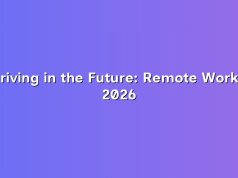Different people make use of other techniques to deal with conflict, while the majority of people have one or more, preferred conflict resolution strategies that they make use of consistently. Thus, it is possible to rationally determine a person’s inclinations toward specific conflict resolution methods. This article will talk about the six different conflict resolution strategies and how they play in a work environment.
Resilience
Managing a dispute will inevitably include dissatisfactions. Possibly a solution you thought would quell both parties fell short, or perhaps when you attempted to moderate a disagreement between your teammates; you only made things even worse. You won’t get it right 100% of the time, and also this can take an emotional toll on you as a supervisor. Building resilience will undoubtedly make sure that you stay mentally tough enough to lead your team, regardless of any setbacks.
Relationship building
As a manager, you have to look at conflict management through the lens of partnership building. That’s because, unlike an external expert or moderator, you will certainly work with this group every day for a long time. So whenever you’re taking care of conflict in your team, make sure not to damage the bonds between you and the people who report directly to you.
Emotional intelligence
As mortals, it’s natural that each one is bombarded with various feelings that turn up throughout the day. Emotional intelligence is the ability to comprehend your and your teammates’ sentiments and respond in a positive, non-reactive method. Frequently, a team member’s feelings may affect their response or interpretation of an event.
It’s your job to develop emotional intelligence skills before you go ahead and help someone else (instead of being reactive and inadvertently raising the situation through your wrong actions). Putting the growth of your emotional intelligence on the back burner will not cut it.
Diplomacy
When handling problems on your team, try not to choose sides or pin one person as the “hero” as well as the other as the “crook.” Though it might be difficult to stay objective, it may be easier if you’re already motivated toward tolerance. Individuals with high intolerance levels see the value of having a group full of people with unique styles. They comprehend and also welcome people who have different values and approaches.
So, if two teammates have opposing views on just how to resolve an issue, it might not be that a person’s method is correct and the other is wrong. Instead, it might just be two various ways of framing a problem.
Impartiality
Your team’s chemistry can come to a grinding halt if every person starts taking sides. This includes you as a mediator. Impartiality can assist in keeping the dynamics of a team in place. Unless you’re a zen person, this can be challenging. But possible.
Try these tips:
Try to remain tranquil as well as be mindful of your tone. If all hell breaks loose and you feel overwhelmed, request for a 5-minute ‘washroom’ break. After that, take deep breaths to restore your feeling of calmness as well as perspective.
Never include past battles in a prevailing conflict. It’s of no use in opening old wounds, which can be exceptionally harmful to all parties.
Make the discussion about somebody’s behavior or language, never regarding the person.
Collaboration
So what happens if you call upon your innovative skills but still feel stuck? That’s when you can take advantage of your collaboration skills! Keep in mind; you have smart and capable working for you. Moreover, the ones involved in the problem might be ideally equipped to conceptualize a solution for you. So make sure to request their comments and actively involve them in the conflict management procedure.
By collaborating with your team and seeking their ideas, you’ll be well placed to tackle any problem that comes your way.
The future of work means differently to each one of us: some see it as more technology and less human, some expect a more humanized space and some others imagine it to be a no-workplace world. In our journey to unwrap FutureofWork, Work2.org invites leaders from various industries to help our global community to understand what the posterity holds for workers, leaders and organizations. While our team is busy at bringing this fresh ideas directly to you, we would appreciate our community help in making it possible. If you like what you’ve read, we would appreciate if you could spread the word within your circles and let us know if anything you want us to bring into this #FutureOfWork conversation.




























